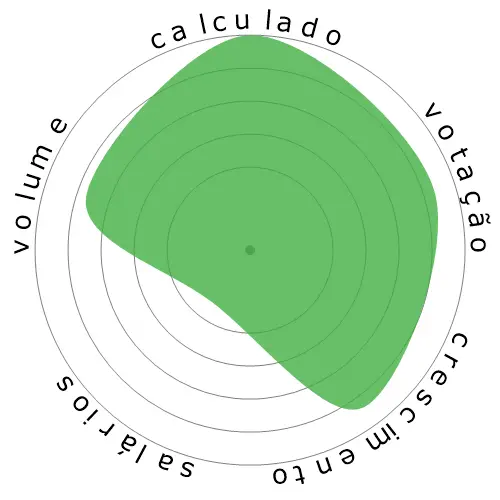Conselheiros de Saúde Mental
Dados de emprego não estão disponíveis especificamente para esta ocupação no Bureau of Labor Statistics, então estamos usando os dados de Substance Abuse, Behavioral Disorder, and Mental Health Counselors.




As pessoas também visualizaram
Risco de automação calculado
Risco Mínimo (0-20%): Ocupações nesta categoria têm uma baixa probabilidade de serem automatizadas, pois geralmente exigem resolução complexa de problemas, criatividade, fortes habilidades interpessoais e um alto grau de destreza manual. Esses trabalhos geralmente envolvem movimentos de mão intrincados e coordenação precisa, tornando difícil para as máquinas replicarem as tarefas necessárias.
Mais informações sobre o que é essa pontuação e como ela é calculada estão disponíveis aqui.
Enquete do usuário
Nossos visitantes votaram que há uma baixa chance de esta ocupação ser automatizada. Esta avaliação é ainda mais apoiada pelo nível de risco de automação calculado, que estima 0,0% de chance de automação.
O que você acha que é o risco da automação?
Qual é a probabilidade de que Conselheiros de Saúde Mental seja substituído por robôs ou inteligência artificial nos próximos 20 anos?
Sentimento
O gráfico a seguir é incluído sempre que há uma quantidade substancial de votos para gerar dados significativos. Essas representações visuais mostram os resultados das enquetes dos usuários ao longo do tempo, fornecendo uma indicação importante das tendências de sentimento.
Sentimento ao longo do tempo (anualmente)
Crescimento
Espera-se que o número de vagas de emprego para 'Substance Abuse, Behavioral Disorder, and Mental Health Counselors' aumente 18,8% até 2033
As projeções atualizadas são devidas 09-2025.
Salários
Em 2023, o salário anual mediano para 'Substance Abuse, Behavioral Disorder, and Mental Health Counselors' foi de $ 53.710, ou $ 25 por hora
'Substance Abuse, Behavioral Disorder, and Mental Health Counselors' receberam 11,8% a mais do que o salário médio nacional, que era de $ 48.060
Volume
A partir de 2023 havia 397.880 pessoas empregadas como 'Substance Abuse, Behavioral Disorder, and Mental Health Counselors' dentro dos Estados Unidos.
Isso representa cerca de 0,26% da força de trabalho empregada em todo o país
Dito de outra maneira, cerca de 1 em 381 pessoas são empregadas como 'Substance Abuse, Behavioral Disorder, and Mental Health Counselors'.
Descrição do trabalho
Aconselhar e orientar indivíduos e grupos para promover a saúde mental e emocional ideal, com ênfase na prevenção. Podem ajudar indivíduos a lidar com uma ampla gama de problemas de saúde mental, como aqueles associados a vícios e abuso de substâncias; problemas familiares, parentais e conjugais; gerenciamento de estresse; autoestima; ou envelhecimento.
SOC Code: 21-1014.00


Comentários
Leave a comment
The client also has unlimited access to a therapist that never gets fatigued or distracted. Plus, the client can have on-demand access 24/7/365, for 5 minutes or 5 hours.
Sadly, therapists will be rare, but fortunately, society will achieve greater mental health.
For people who want quick fixes, they may turn to AI for a while. But as symptoms return, they'll wise up.
What's worrisome is the monetization of AI for these purposes. Research into AI therapy is almost entirely unethical, largely because it will be used for profit, not for people - and we all know it.
By the time people realize AI therapists are a sham, insurance companies may have long abandoned reimbursement for human therapy. We'll be too busy doomscrolling or consuming YouTube videos of kittens to do anything about it.
Eventually, when the philosophical debate about what it means to be "conscious" and "alive" starts to include AI, then it will be very interesting. However, that is likely far away.
Deixe uma resposta sobre esta ocupação